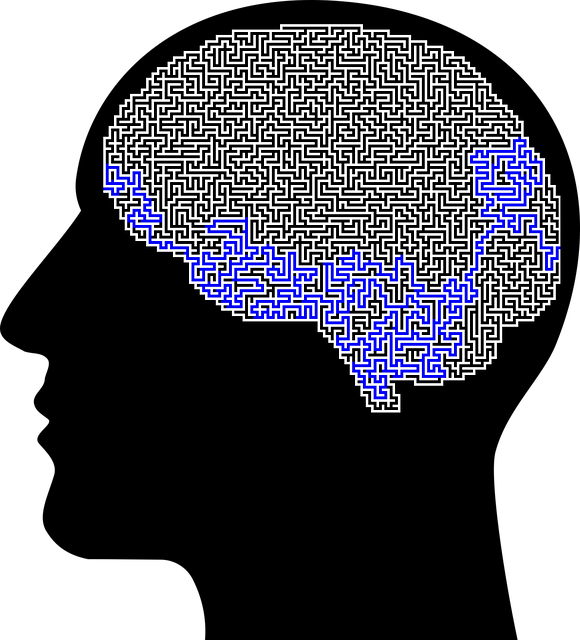Resilience is crucial for navigating life's challenges, especially for those with mental illness. Louisville Exposure and Response Prevention Therapy (ERPT), grounded in Recovery-Focused Management, empowers individuals by shifting focus to their strengths and teaching effective coping strategies. This tailored approach enhances self-efficacy, reduces stigma, and fosters emotional regulation through gradual exposure to fears, ultimately building resilience and improving mental wellness. Success is measured using a multi-faceted method combining quantitative data and participant feedback for dynamic adjustments to strategies over time.
Resilience is a vital asset in navigating life’s challenges. This article explores an effective strategy, RFM (Recovery-Focused Goals and Strengths Model), and its integration with Louisville Exposure and Response Prevention Therapy (LERP) exercises to enhance resilience. We delve into the process of understanding RFM’s role in fostering adaptability, implementing LERP for exposure therapy, and measuring success through tailored strategies. By combining these approaches, individuals can develop a robust mindset to face and overcome adversity.
- Understanding RFM and Its Role in Resilience Building
- Implementing Louisville Exposure and Response Prevention Therapy (LERP) Exercises
- Measuring Success and Adjusting Strategies for Optimal Resilience
Understanding RFM and Its Role in Resilience Building

Resilience is a critical factor in navigating life’s challenges and setbacks. This is where RFM (Recovery-Focused Management) comes into play as a powerful tool for building resilience, especially among individuals dealing with mental illness. RFM is an approach that shifts focus from the disorder to the individual’s strengths and resources, aiming to enhance their ability to recover and thrive despite adversity. By utilizing this method, therapy sessions like Louisville Exposure and Response Prevention Therapy (ERP) can effectively support clients in developing coping mechanisms and a sense of empowerment.
The process involves recognizing and utilizing an individual’s unique strengths, facilitating meaningful goals, and fostering a positive mindset. This is particularly beneficial in reducing the impact of mental illness stigma and promoting self-efficacy. Through RFM, therapy sessions can incorporate Social Skills Training and Coping Skills Development activities tailored to each client’s needs. By mastering these skills, individuals gain practical tools to manage stress, regulate emotions, and adapt effectively to life’s challenges, ultimately building a stronger sense of resilience.
Implementing Louisville Exposure and Response Prevention Therapy (LERP) Exercises

The Louisville Exposure and Response Prevention (LERP) Therapy exercises offer a powerful approach to building resilience in individuals struggling with anxiety disorders or post-traumatic stress. This innovative therapy is designed to help clients confront and manage their fears by gradually exposing them to distressing situations while teaching effective coping strategies. Through LERP, participants learn to respond differently to triggers, ultimately reducing the power they hold over one’s emotions.
By integrating LERP into a comprehensive mental wellness program, individuals can develop long-lasting resilience. These exercises are particularly effective in conjunction with other stress reduction methods and emotional healing processes explored in popular Mental Wellness Podcast Series Production. With consistent practice, individuals gain better control over their reactions, fostering a sense of calm and empowerment, and enhancing overall mental wellness.
Measuring Success and Adjusting Strategies for Optimal Resilience

Measuring Success and Adjusting Strategies for Optimal Resilience
Evaluating the effectiveness of RFM and resilience-building exercises involves assessing both qualitative and quantitative data. By conducting regular check-ins with participants, gathering feedback through surveys or interviews, and tracking individual progress over time, practitioners can gain valuable insights into what’s working and what needs improvement. This iterative process allows for dynamic adjustments to strategies, ensuring that interventions remain tailored to the evolving needs of the individuals involved.
For instance, in the context of Louisville Exposure and Response Prevention Therapy (ERPT), successful implementation might be marked by significant reductions in anxiety levels, as measured through standardized assessments. Additionally, qualitative feedback from participants can highlight improvements in stress management skills, increased emotional regulation, and enhanced coping strategies. Integrating these data sources enables therapists and facilitators to fine-tune their approaches, fostering a more robust and personalized inner strength development program within the organization’s Stress Management Workshops.
The implementation of Louisville Exposure and Response Prevention Therapy (LERP) exercises, as part of RFM (Resilience, Flexibility, and Mastery) training, offers a powerful approach to building resilience. By combining cognitive strategies with real-world exposure, individuals can effectively manage anxiety and develop adaptive coping mechanisms. Measuring success through regular assessments allows therapists to adjust strategies, ensuring optimal resilience outcomes. This tailored approach not only enhances mental well-being but also equips folks with the tools to navigate life’s challenges, fostering a more resilient mindset.














